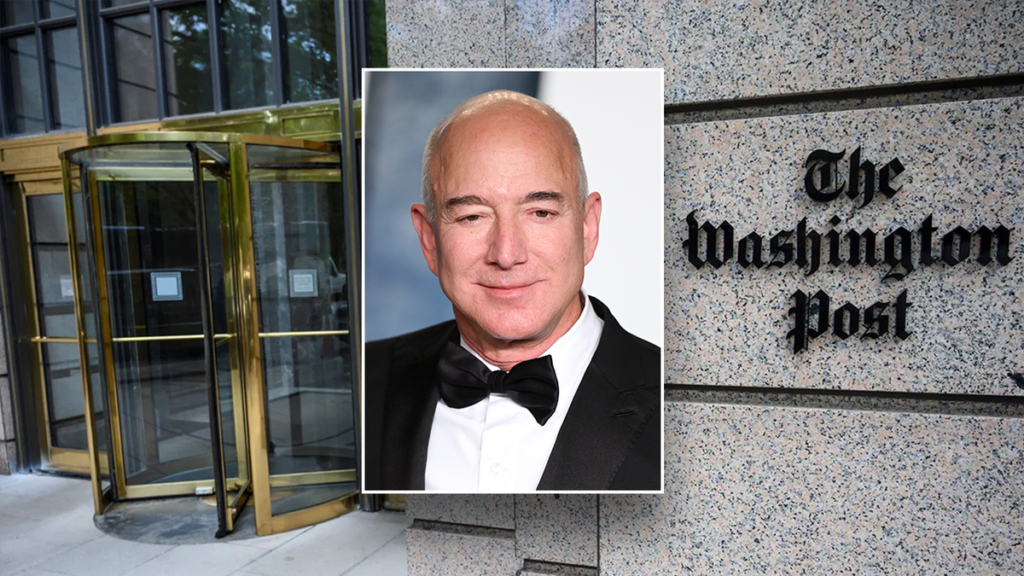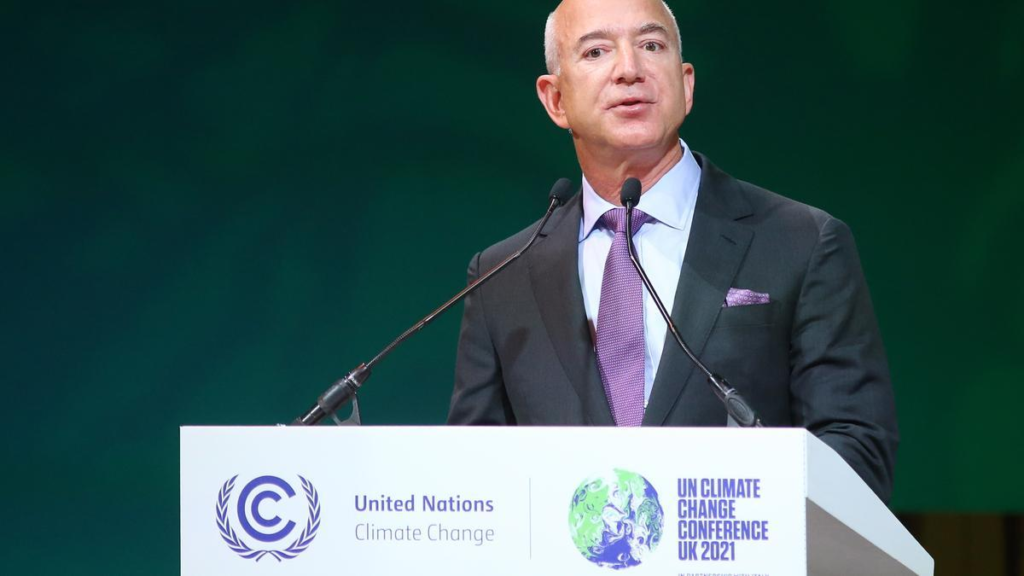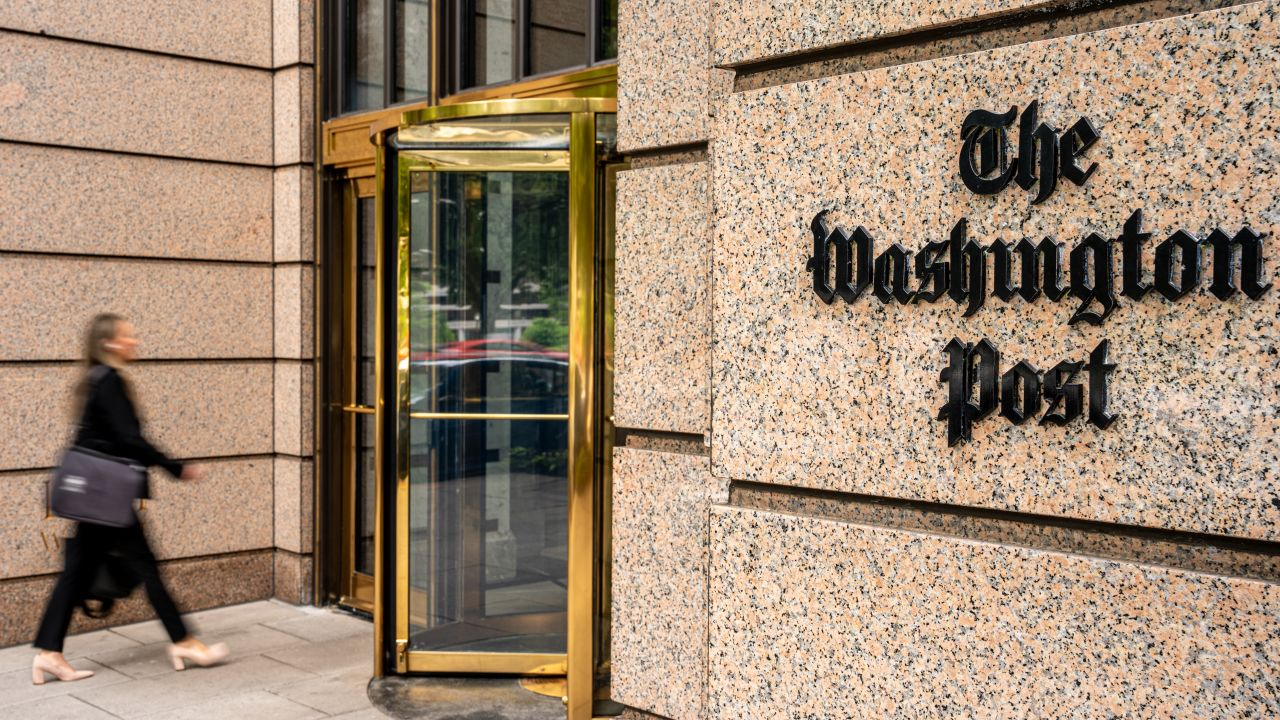In a significant turn of events leading up to the November 5th U.S. presidential election, The Washington Post faced backlash after its decision not to endorse a candidate, with over 200,000 subscribers canceling their digital subscriptions.
The decision, spearheaded by the paper’s owner and Amazon founder Jeff Bezos, stirred controversy, with reactions from former editors and accusations of compromised journalistic principles.
While Bezos defended the move as “principled” and necessary to maintain journalistic independence, critics argue it was poorly timed, alienating readers and sparking an ongoing debate about the role of endorsements in major news publications.
Bezos Defends Decision to Endorse Neither Candidate
Jeff Bezos, who has owned The Washington Post since 2013, stood by the paper’s decision to refrain from endorsing any candidate in the 2024 presidential race.
For decades, presidential endorsements from prominent newspapers have served as an influential signal, suggesting to readers which candidate they believe is best suited for office.
Yet, Bezos articulated that such endorsements might now carry unintended consequences, stirring perceptions of bias and compromising journalistic independence.
In his statement, Bezos emphasized that The Washington Post’s choice not to endorse was “the right and principled decision.” According to him, the move aimed to empower readers to make independent decisions based on their own assessments rather than being guided by the publication’s editorial position.
Read : More Billionaires Supporting Kamala Harris Than Donald Trump
Bezos also dismissed any allegations that the decision was swayed by political forces, noting it was made internally without any influence from the campaigns of either Kamala Harris or Donald Trump.
However, the decision’s timing, weeks before a highly polarized election, has caused unease, with many questioning the abrupt shift in the paper’s longstanding tradition. Former Executive Editors Marcus Brauchli and Marty Baron voiced concern over the lack of transparency and consultation within the editorial board on this issue.
Read : From Jeff Bezos To Dwayne Johnson : Do You Know Why Most Of Rich People Are Bald ???
Baron, in particular, highlighted the absence of a “substantive, serious deliberation,” calling into question the motivation behind this drastic shift. The Washington Post’s departure from its conventional endorsement practice was seen by some as a deviation from journalistic responsibility in an election with profound implications.
Massive Subscriber Exodus and Editorial Concerns
Following the announcement of The Washington Post’s decision, the paper witnessed an unprecedented wave of subscription cancellations. By Monday afternoon, over 200,000 digital subscribers had reportedly canceled their accounts, amounting to around 8 percent of the paper’s total paid subscriptions.
This mass exodus reflects a palpable sense of dissatisfaction among readers who expected a clear editorial stance from a publication of The Washington Post’s stature.
The decision has not only alienated subscribers but also raised doubts within the newsroom. Some staff members, who were reportedly leaning toward endorsing Democratic candidate Kamala Harris, felt that their editorial voice was stifled.
Although the publisher, Will Lewis, clarified that the decision was intended to respect readers’ ability to “make up their own minds,” some insiders view this move as a missed opportunity to uphold the publication’s commitment to advocating for democratic values.
As former editor Marcus Brauchli put it, the sudden and unexpected cancellations were “colossal,” signaling a disconnect between the editorial leadership and its readership.
The timing of the endorsement decision has added another layer of complexity. With just a few weeks until the election, some readers viewed the decision as a withdrawal of support for one side, effectively making an implicit endorsement by omission.

The newspaper’s editorial staff was reportedly leaning toward endorsing Harris, a move consistent with its generally progressive stance.
However, with Bezos at the helm, the policy shift has fueled speculation about corporate influence on newsroom decisions, especially given his status as a billionaire with diverse business interests, including his ownership of Amazon.
Bezos Addresses Allegations of Political Bias and Conflicts of Interest
To counter the growing public scrutiny, Bezos issued a public statement addressing rumors of political bias and conflicts of interest. He acknowledged that the timing of the decision could have been better planned, ideally positioned further from the emotional height of election season.
In response to allegations linking the endorsement decision to a recent meeting between Republican candidate Donald Trump and Blue Origin CEO Dave Limp, Bezos clarified that he was unaware of the meeting until after it occurred.
According to Bezos, there was no connection between this meeting and the newspaper’s decision, dispelling theories of a quid pro quo relationship between the candidates and the newspaper.
Bezos’ defense was grounded in a broader rationale for The Washington Post to remain independent from political endorsement, especially during a time when journalism faces increasing scrutiny over perceived bias.
He argued that presidential endorsements serve little purpose in swaying election outcomes, stating that they merely contribute to a “perception of bias” among readers. Bezos contended that the decision was not part of any strategic plan but rather an effort to uphold a standard of impartiality.
Despite Bezos’ clarifications, his statements failed to quell all suspicions. Marty Baron, a former Washington Post executive, pointed out that the absence of thorough discussions with the editorial board suggests that the decision might have been made for reasons other than journalistic integrity.
Baron’s concerns echo those of readers and critics who believe that news organizations have a duty to take a clear stance in a democratic society, especially in such a contentious election year.
A New Era for Media Endorsements?
The Washington Post’s choice to abstain from endorsing a candidate represents a significant shift in the role of media endorsements, especially in the digital age where readers expect transparency and accountability.
As major publications navigate the challenges of maintaining credibility amidst political divisiveness, The Washington Post’s move could signal a trend among other media organizations to reevaluate the necessity and impact of endorsements.

Endorsements, while intended to reflect a publication’s values and editorial stance, have become increasingly controversial, with critics arguing they contribute to polarization and compromise journalistic objectivity.
By withdrawing from this tradition, The Washington Post is arguably positioning itself as an unbiased source in an era where readers are more discerning than ever. The decision may attract new audiences who favor an impartial approach, but it has evidently come at a high cost, given the immediate loss of hundreds of thousands of subscribers.
For Jeff Bezos, the aftermath of this decision underscores the challenges faced by media executives in balancing editorial independence with public expectations.
While he has affirmed his commitment to fostering a newspaper free from perceived partisan influence, the fallout has revealed a complex reality where journalistic principles and business interests are often at odds.
In a media landscape where trust is increasingly fragile, The Washington Post’s endorsement policy may serve as a bellwether for other outlets facing similar dilemmas.

